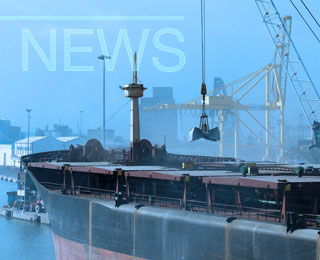While all dry bulk shipping markets are still nose-diving towards levels now deeper than last year’s lowest figures, many raw material producers are busy announcing production increases. Australian iron ore outputs "are expected to increase 34Mt to 274Mt in 2006, following a rise of 29Mt this year to 240Mt" and the bureau raised its overall estimate for minerals and energy sales by 2.7 per cent for the year ending June 2006. BHP Billiton has made the decision to spend over A$10bn (US$8bn) over the next three years on a number of mining projects. At the same time some Chinese entrepreneurs are planning to start digging an offshore coal mine which has proven reserves of 1.29 billion tons. To end with this list, Japan has just revealed that its steel production has raised by 1.9 per cent on a y/y basis from Jan to May. So now wait and see the impact all this could have on our depressed shipping markets.
The Panamax market lost even more ground last week with the average of the four time charters breaking the US$20,000 barrier to finish the week at US$19,412 (down from US$21,649 on Monday June 13th). The Atlantic was still suffering the effects of building tonnage against minimal fresh orders but the slide in the Pacific slowed, the pressure certainly seems to have eased somewhat and the market may have found a level but an upturn still is nowhere in sight. Owners have been feeling the strain in the last month and seem to be digging their heals in when possible and although there maybe a further decrease, we hope to see a stabilisation of the market this week.
The market of Handysize/Handymax vessels was still on a "sleepy" mood last week with no real signs of panic from the owners’ side even if the rate trend remains negative. Celebrations occurring in Greece were probably not pushing for more activity. The supply of ships looks still unbalanced between the Atlantic and Pacific, however, demand has not been showing real signs of a quick recovery. If the Atlantic rates seem to be still reasonable especially from the US Gulf/Singapore-Japan range where Tess 42’s are paid in the high 20’s, Pacific is now literally in free fall, not only due to the lack of cargoes in the area, but also due to owners still willing to go for better rates in the Atlantic.
Source: Barry Rogliano Salles, Shipbrokers, Paris

USG Supramax freight market sentiment mixed and uncertain
The USG Supramax spot freight market strengthened overall during the month, despite uncertainty ...